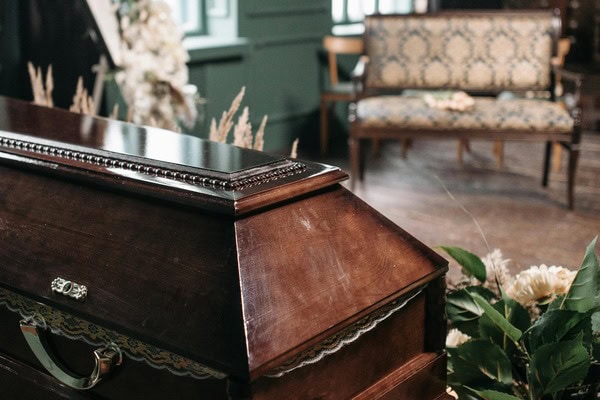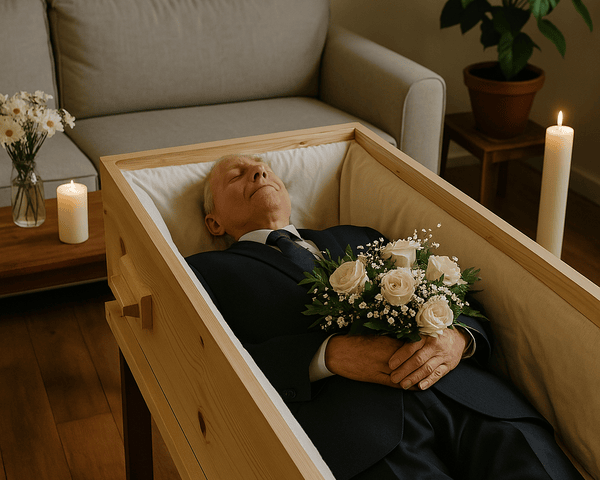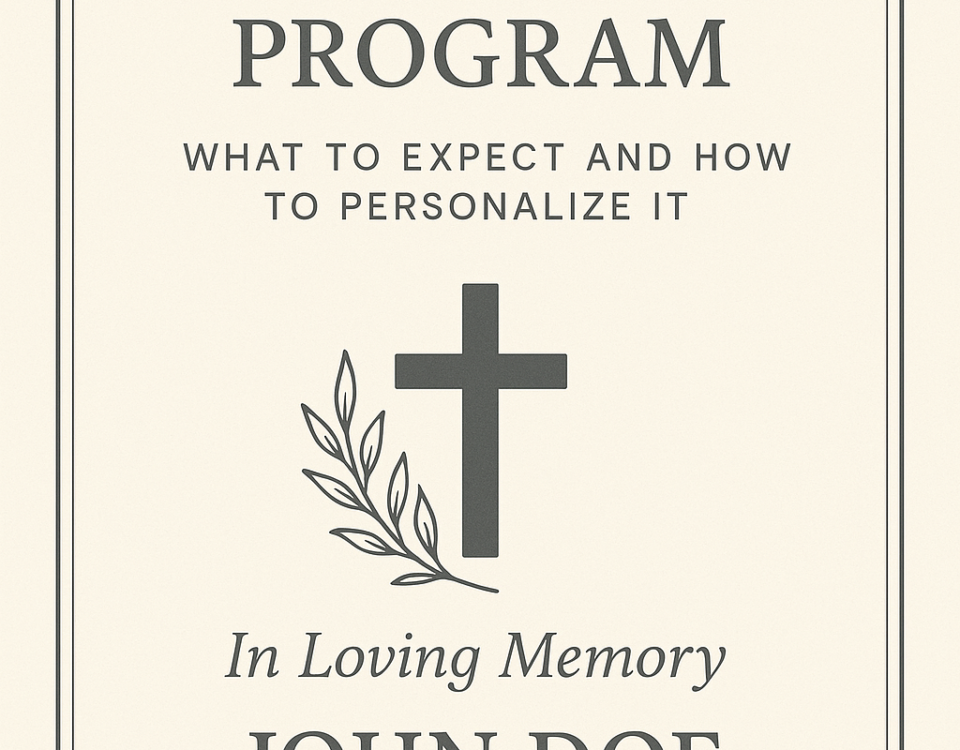Types of Funeral Services: Home Funeral Services

Types of Funeral Services: Green Funeral Services
April 22, 2025
Types of Funeral Services: Graveside Services
April 22, 2025Home funerals are becoming increasingly popular as families look for personal, meaningful ways to say goodbye to loved ones. Different from traditional funeral proceedings, home funerals offer a personal space where loved ones can become actively involved in the care and celebration of the deceased. They are best described as a more compassionate, tailored process that provides a sense of control and bonding in a difficult situation.
People choose home funerals for a number of reasons. Some appreciate that it is cost-saving, but others appreciate that they can make it a more personal, DIY affair. A home funeral allows families to honor their loved one in a space where they have made memories. Being able to make each aspect of the ceremony, from decoration to ritual, what one feels is most fitting makes for a good and meaningful farewell.
Understanding Home Funerals
A home funeral, or a family-directed funeral, is a funeral that is held at home, not at a funeral parlor. Family and friends play an active role in preparing the body, arranging the ceremony, and performing the farewell. As opposed to typical funerals, where professionals are in charge of most aspects, home funerals allow loved ones to have personal participation at every step.
Home funerals are all about simplicity and familiarity. They are followed by ceremonies that reflect the personality and faith of the deceased, and are composed of a homey and comforting atmosphere. The washing, dressing, and preparation of the body is conducted by family and friends, and tends to be therapeutic and rewarding.
What Is a Home Funeral?
A home funeral is one where the family takes charge of the care and preparation of the deceased themselves. This contrasts with traditional methods, whereby funeral professionals carry out the task. The body remains at home, allowing for private viewing and personal rites, a closeness and contemplation encouraged.
Historical Context and Modern Revival
Historically, home funerals were prevalent as the family dealt with the deceased in the home prior to funeral practices of the contemporary era. In recent years, however, a renewed interest in the tradition has been seen as people search for more fulfilling and cost-effective actions to express gratitude to their loved ones who passed away. Home funeral movement groups emphasize community involvement as well as healing through immediate action.
Preparing for a Home Funeral
Planning a home funeral involves meticulous organization and coordination. It may seem overwhelming, but breaking the process into smaller tasks makes it doable. Following is a step-by-step plan to help you plan a gorgeous and respectful home funeral.
Step 1: Gather Necessary Documentation
First, ensure that you have all the legal documents you require. This is often a death certificate, transit permit for burial, and state-specific documents. The local health department or vital records office should be contacted for the best information on what documents are required.
Step 2: Choose a Suitable Space
Select a room or area in the house where the body will be placed. Consider ventilation, temperature control, and visiting rooms for visitors. Others prefer to have it in a living room or a large bedroom. Arrange the area with chairs, lighting, and personal accessories like flowers or photos.
Step 3: Prepare the Body
Home funerals draw family members into working with the deceased. Begin by washing and dressing the body carefully. Choose clothing that is meaningful or that the deceased wanted to wear. Cooling processes, such as the use of ice packs or a cooling bed, preserve the body from decay while it remains on view.
Step 4: Involve Family and Friends
Having loved ones participate in the preparation gives a feeling of belonging and togetherness. Whether helping with washing, dressing, or flower arrangement, doing it together makes it more meaningful.
Step 5: Plan the Ceremony
Organize the order of the funeral. Include items like bible verses for prayer cards, music, memorial bookmarks, and personal tributes. Invite family members to offer memories or anecdotes. A straightforward program with the events in sequence assists in directing the flow of the ceremony.
Benefits of Hosting a Home Funeral
Home funerals offer unique advantages that traditional funeral services may not provide. They foster a personal, intimate atmosphere and allow families to take an active role in honoring their loved one.
Personalization and Intimacy
A home funeral is fully customizable. You can play the deceased’s favorite music, have the room filled with special objects, and invite guests to tell personal anecdotes. The familiar environment provides a soothing atmosphere.
Cost Savings
Home funerals are less costly because they eliminate funeral home and professional service fees. Families don’t have to pay for venue rental, embalming, and other fees, which allows them to spend money on things that really matter. More on funeral costs here.
Emotional and Therapeutic Value
Involvement in the funeral ritual can help members of the family cope with bereavement. Ritual bathing, dressing, and preparing the body allows for acceptance and closure. Sharing experience with loved ones builds a sense of collective healing.
Flexibility and Control
Unlike traditional services bound by a funeral home’s schedule, home funerals offer the flexibility to plan the ceremony at your own pace. You’re not restricted by visiting hours or set rituals, allowing for a more personalized approach.
Home funerals are deeply personal and offer a unique way to honor a loved one. Taking the time to prepare thoughtfully can make the experience meaningful and healing.
Challenges and Considerations of Hosting a Home Funeral
Emotional Preparedness
Home funerals require emotional readiness on the part of all who are involved. In contrast to professionally conducted traditional funerals, home funerals require immediate participation by friends and family members. This is emotionally taxing, especially during a period of loss. Families must consider their ability to handle the work, such as preparing the body and taking visitors.
Taking some time to go over this choice candidly within the family measures preparedness. Having close friends included can also provide additional encouragement. Having a grief support system established prior to the funeral ensures no one has to endure it by themselves.

Logistical Challenges
Planning a home funeral also has unique logistical hurdles. Space is particularly an outstanding issue in case a high number of visitors is expected. Consider your house size and whether it comfortably accommodates visitation and ceremonies.
Parking is also an issue. Advance notice to neighbors and possibly special parking arrangements with local authorities can prevent headaches. Seating and dining arrangements, especially for longer visits, need to be booked in advance for convenience.
Seeking Professional Assistance
Despite the desire for a family-focused process, some steps may nevertheless be enhanced with the input of professionals. Death doulas or home funeral guides can assist with logistical counsel and emotional assistance. They can release some burden on family members by bringing the knowledge of body preparation, legal documents, and ritual planning.
Experts can also assist with administrative requirements, including the procurement of the necessary permits and documents. Having a guide consult during planning may be helpful in having things cleared and preventing non-compliance with local authorities.
Resources and Support for Home Funerals
National Home Funeral Alliance
National Home Funeral Alliance (NHFA) is an asset to be utilized by families who are considering a home funeral. They have educational materials, legal information, and a database of legal guides across the country. Their guidance can guide families through emotional as well as practical challenges.
Educational Materials and Workshops
Books, workshops, and websites provide practical advice to plan a home funeral. They include checklists, step-by-step procedures, and anecdotes from families who have pursued this option. It can be less daunting when one can learn from others.
Conclusion
Home funerals have the potential to be a deeply personal and intimate farewell. Preparing families beforehand for the difficulties helps them do so emotionally as well as practically. With support from professionals where needed and facilities at hand, families can deliver a personalized, dignified, and comforting place in which to bid farewell.


